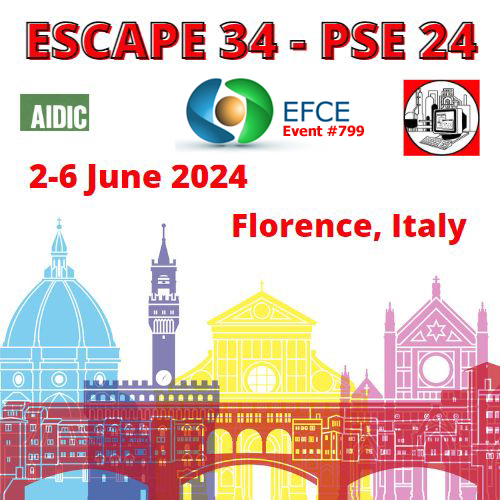Model-based Design of Experiments in the Digitalization Era
Coordinator
Francesco Rossi, Purdue University
Presenters
Sandro Macchietto, Imperial College London
Fabrizio Bezzo, University of Padova
Zoltan Nagy, Purdue University
Alexander Dowling, University of Notre Dame
Worshop description:
Design of experiments (DoE) is essential to mathematical model development and
thus represents one of the backbones of process systems engineering.
More importantly, the relevance of DoE techniques has been steadily growing over the last couple of decades because of two principal reasons: (I) the increasing need for accurate, first-principles-inspired/hybrid models of complex systems (e.g., multi-phase, highly nonideal and/or electrified process operations, and biological systems), which are intrinsically large-scale, very structurally complex and often poorly identifiable; and (II) the need for accurate, large-scale machine learning models for applications such as material discovery and product design, for which proper model training becomes a significant challenge.
Both of these types of models indeed require carefully crafted training datasets for initial setup, which is where DoE techniques come in handy.
In this workshop, we will introduce the participants to frequentist model-based
DoE. More specifically, in the morning session, we will briefly explain the
theoretical foundations of this type of DoE techniques, discuss their intended
scope, highlight their advantages and disadvantages compared to space-filling
DoE strategies, and provide practical guidance on how to apply them to real-world
engineering problems through meaningful examples.
In the afternoon hands-on session, on the other hand, we will
offer the participants the opportunity to solve a selection of model-based DoE
(and parameter estimation) problems firsthand, using the open-source Pyomo ecosystem
(e.g., ParmEst and Pyomo.DoE). Additional information on the workshop activities
is reported in the table below.
|
Time
|
Speakers
|
Activity
|
| 9:00 AM 10:00 AM |
Macchietto |
• History of model-based DoE
|
| 10:00 AM 11:00 AM |
Bezzo |
• Overview of frequentist model-based DoE techniques,
including offline/online and sequential/parallel strategies
• Brief mention to model identifiability and model discrimination as they pertain to DoE problems |
| 11:00 AM 12:00 PM |
Lunch Break |
Lunch Break
|
| 12:00 PM 1:00 PM |
Nagy |
• Frequentist model-based DoE strategies for semi-automated
crystallization process development
• Demo of CrySiV model-based DoE capabilities |
| 1:00 PM 3:00 PM |
Dowling |
• Application of frequentist model-based DoE (and parameter estimation)
techniques in the Pyomo ecosystem, using ParmEst and Pyomo.DoE (materials
shared via a stand-alone website including code templates and examples) |
Requirements for participation
All participants will need a laptop computer (with admin privileges) or a tablet
(with keyboard), which can run Google Colab in the web browser.
Coordinator's bio
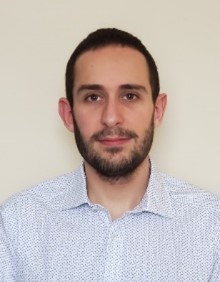
Francesco Rossi is a Research Scientist in the Davidson School of Chemical Engineering at Purdue University. He received BSc and MSc degrees in Chemical Engineering from Politecnico di Milano and a dual PhD degree in Chemical Engineering from Politecnico di Milano and Purdue University.
His research expertise is in process systems engineering (PSE), applied mathematics & statistics, and machine learning, with specific emphasis on (1) first principles inspired and hybrid (first principles inspired & Bayesian) mathematical modeling of complex systems, (2) development of robust, model-based condition monitoring, control and multi-scale optimization strategies for complex systems, and (3) the application of all these strategies to a wide array of problems in chemical & (bio)pharmaceutical manufacturing and individualized medical treatments.
Francesco has published more than 50 journal & conference papers (including a book chapter on dynamic optimization of steam cracking operations), and has delivered more than 25 conference presentations and invited research seminars (including an invited plenary talk at ESCAPE 30). His research and professional achievements led to his appointment as a CES Early Career Editorial Board Member in 2022, and have been recognized with several awards, including an EFCE Special Mention in Recognition of an Outstanding PhD Thesis on CAPE (2020), a Baxter Young Investigator Award (2020), and a Seed for Success Acorn Award (2022).
Presenters' bio
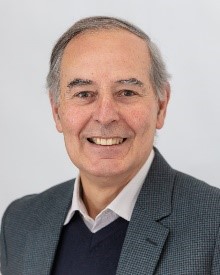
Sandro Macchietto is Professor of Process Systems Engineering in the Department of Chemical Engineering at Imperial College London, where he established innovative organizations in both academia and industry with strong interfaces between them.
His academic research, originating methods for simulation, design, control and optimization of process and energy systems, is widely applied in industry. He co-founded two successful spinoffs (Process Systems Enterprise; Hexxcell), co-founded and directed multidisciplinary research centers (Centre for Process Systems Engineering, Energy Futures Lab) and created the innovative MSc Course in 'Sustainable Energy Futures'. He is presently an Enterprise Champion at Imperial.
Recognitions include Queen's Awards for Excellence, Queen's Awards for Enterprise, the Royal Academy of Engineering MacRobert Award, and IChemE's Sargent's Medal. He was conferred the title of Cavaliere of the Order of Merit (Italy's highest civil honor) by the Italian President.
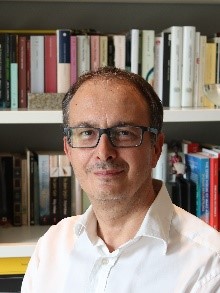
Fabrizio Bezzo is a Professor of Chemical Engineering in the Department of Industrial Engineering at the University of Padova, where he co-leads the CAPE-Lab research group.
He received his degree in Chemical Engineering from the University of Padova and his PhD in Chemical Engineering from Imperial College London (UK). His research interests focus on hybrid modelling and machine learning, model-based design of experiments, and process and supply chain optimization for the chemical, pharmaceutical and energy sectors.
He published over 200 scientific papers in international research journals and conference proceedings. He received the PSE Model-Based Innovation Prize in 2014, and co-chaired the Energy Section of the European Federation of Chemical Engineering from 2017 until 2022. He is the director of the professional master program "GMP compliance quality expert for pharmaceutical operations".
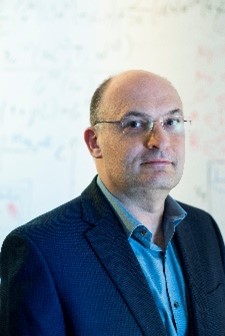
Zoltan K. Nagy is the Arvind Varma Professor of Chemical Engineering in the Davidson School of Chemical Engineering at Purdue University, and Professor of Process Systems Engineering at Loughborough University.
He received his B.S. (1994), M.Sc (1995) and PhD (2001) degrees from the Babes-Bolyai University of Cluj, Romania. His research focuses on pharmaceutical systems engineering, process intensification and advanced process control, crystallization modeling and control approaches, and advanced control of particulate systems, with application to pharmaceuticals, fine chemicals, food and energetic materials.
He has published over 250 journal papers, 300 conference proceeding papers, 6 patents and co-founded three companies. He has graduated over 50 PhD students and postdocs in the UK and USA. He has received awards in the areas of crystallization and control from IEEE, IFAC, European Federation of Chemical Engineering, Royal Academy of Engineering and the European Research Council, and he was the recipient of the AIChE's Excellence in Process Development Research Award (2018) and the Pharmaceutical Discovery Development and Manufacturing (PD2M) Forum Award for Outstanding Contribution to QbD for Drug Substance (2019).
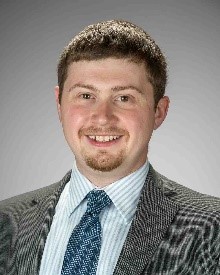
Alexander (Alex) Dowling is an Associate Professor in Chemical and Biomolecular Engineering at the University of Notre Dame with a concurrent appointment in Applied and Computational Mathematics and Statistics. He holds a B.S.E from the University of Michigan Ann Arbor and a Ph.D. from Carnegie Mellon University, all in Chemical Engineering.
His research combines chemical engineering, computational optimization, machine learning, and data science organized in three research themes: (1) molecular-to-systems (multiscale) modeling and optimization, (2) optimal design of experiments and statistical inference, and (3) machine learning for bridging timescales. His research group leads the development of Pyomo.DoE. Applications domains include energy markets and infrastructure, integrated energy systems, carbon sequestration, sustainable hydrogen, critical mineral recycling, and advanced separations (membranes, ionic liquids).
Prof. Dowling has been recognized with an NSF CAREER award (2019), the Junior Sargent Medal from IChemE (2023), the university-wide Mentoring Award from the Graduate Student Government (2023), and two R&D 100 awards.
